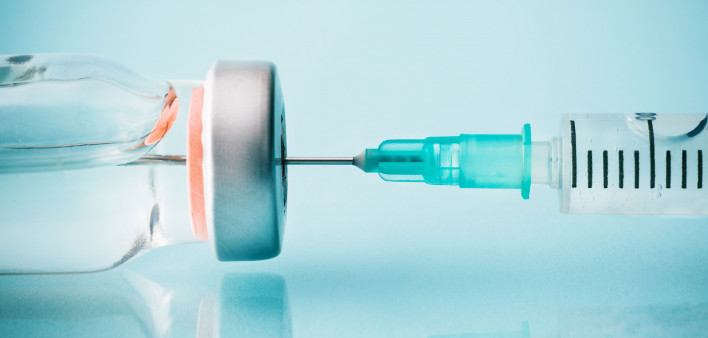UPDATE: On December 20, the FDA approved long-acting cabotegravir injections for HIV prevention, under the brand name Apretude.
Long-acting injections given every other month could soon offer a new option for HIV prevention. The Food and Drug Administration (FDA) has accepted ViiV Healthcare’s New Drug Application for injectable cabotegravir for pre-exposure prophylaxis (PrEP) and granted it priority review status, according to an announcement from ViiV. An FDA decision is expected by the end of January 2022.
If approved, cabotegravir could be the first long-acting HIV prevention option (though a vaginal ring may cross the finish line first). The approved PrEP pill Truvada (tenofovir disoproxil fumarate/emtricitabine, which has generic equivalents) must be taken daily or “on demand” before and after sex. Descovy (tenofovir alafenamide/emtricitabine), which has a narrower approval that excludes people at risk for HIV via vaginal sex, must be taken daily.
Two recent studies showed that long-acting cabotegravir injections work even better than PrEP pills.
The HPTN 083 trial (NCT02720094) enrolled 4,566 cisgender men and transgender women who have sex with men in the United States, Latin America, Asia and Africa. They were randomly assigned to receive cabotegravir injections every two months or once-daily Truvada.
The study was halted ahead of schedule in May 2020 after an interim analysis showed that cabotegravir injections worked as well as daily pills. Further results, first presented at last year’s International AIDS Conference and published in The New England Journal of Medicine, showed that the injections were 66% more effective at preventing HIV acquisition. This is a remarkable finding, given that daily Truvada itself reduces the risk of HIV by about 99% for gay and bisexual men who use it consistently.
A parallel study, HPTN 084 (NCT03164564), compared cabotegravir injections versus daily Truvada for more than 3,000 mostly young cisgender women in sub-Saharan Africa. This trial was also stopped early after an interim analysis found that the injections were more effective.
Researchers first reported that women randomly assigned to receive the injections had an 89% lower risk of acquiring HIV compared with those who used daily pills. Further follow-up, presented at this year’s International AIDS Society Conference on HIV Science, showed that cabotegravir was even more effective—92%—after reclassifying a participant who was found to already have HIV when she entered the study. The advantage of the injections appears to be attributable to better adherence compared with pills.
In both trials, cabotegravir injections were safe and well tolerated. The most common side effect was injection site reactions, including pain, redness or swelling. While a majority of participants reported such reactions, few stopped the injections for this reason. In other studies, most people who tried both PrEP pills and cabotegravir injections said they preferred the latter.
Monthly injections of cabotegravir and rilpivirine, sold as Cabenuva, are already approved for HIV treatment. People who preferred Cabenuva over daily antiretrovirals cited greater convenience, not having to think about HIV every day and not having pill bottles that could reveal their status. However, the injections must be administered by a health care provider, which requires 12 clinic visits a year for treatment or six visits a year for PrEP.
The FDA has set January 24, 2022 as the target approval date. Clinics are already gearing up to offer the new prevention option.
“In the United States, fewer than 25% of those who could benefit from PrEP are currently taking it, which points to the need for additional HIV prevention options,” said Kimberly Smith, MD, MPH, ViiV’s head of research and development. “We believe new options like investigational cabotegravir long-acting for PrEP will help play a significant role in our collective efforts to end the HIV epidemic.”
Click here for more news about PrEP.







2 Comments
2 Comments